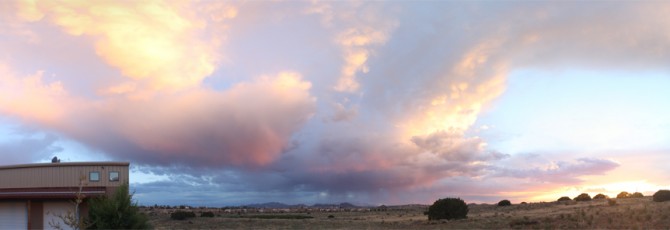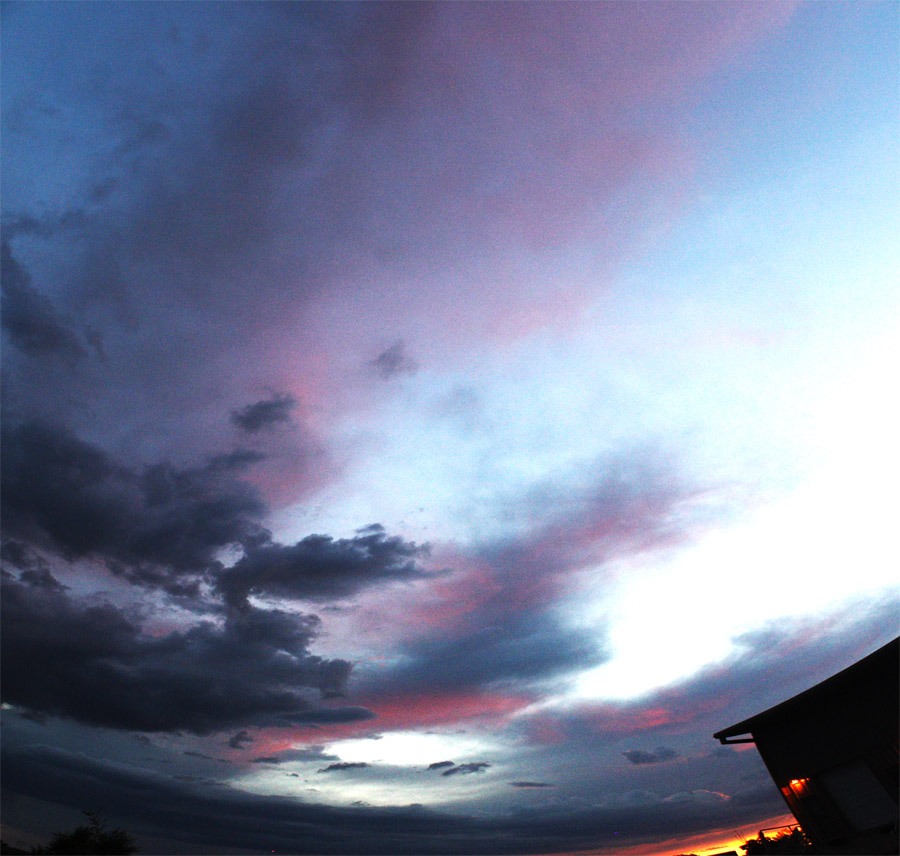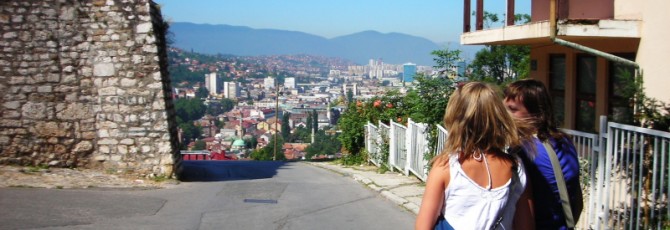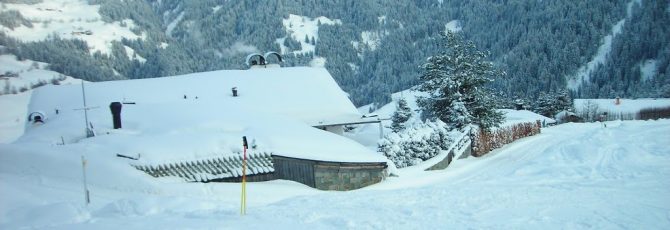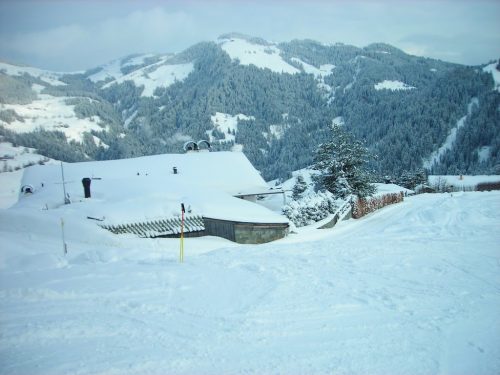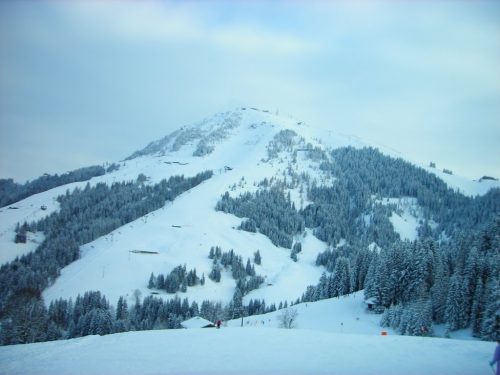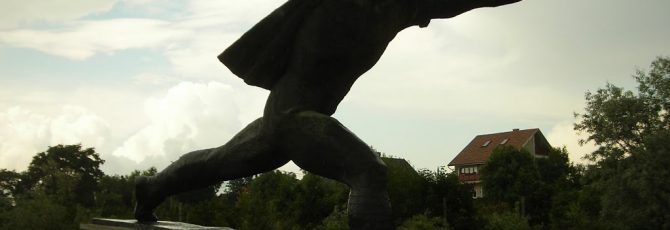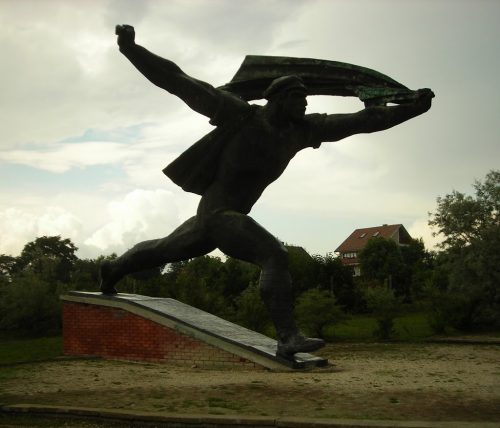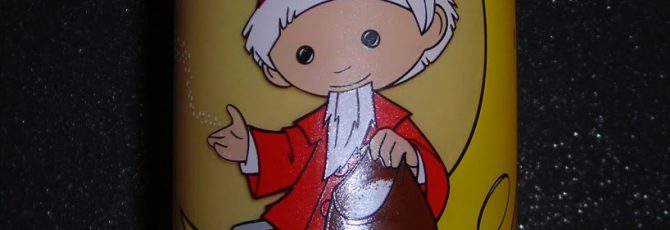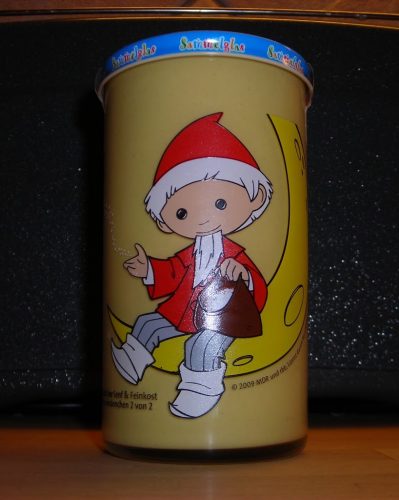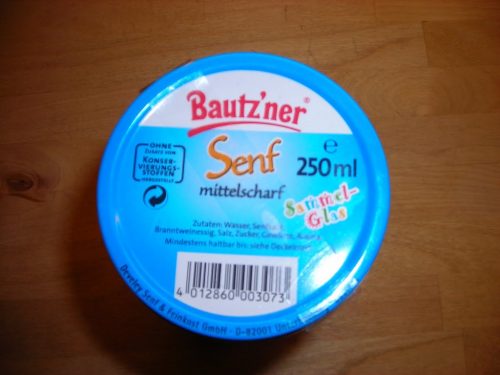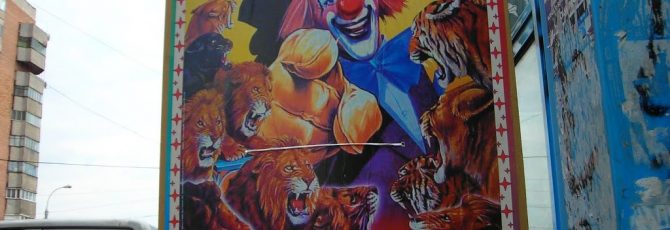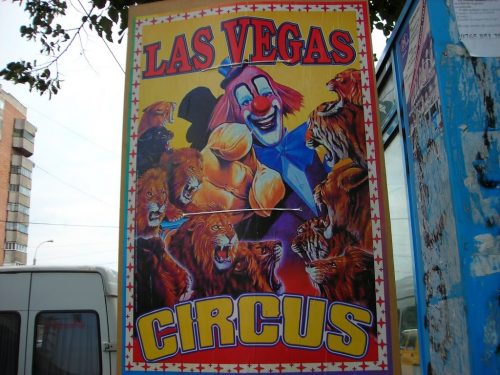Note: This post originally ran on my blog from many years ago, wheeleringermany.blogspot.com. I posted to and updated it during some of my tenure as an au pair in Dresden, Germany.
Part 1
Feb. 13, 2010
The trams had stopped running well before the city proper of Dresden started. Our tram conductor instructed everyone to get onto the awaiting bus to get us further in. Many of the occupants, seemingly normal Dresdners, ran the length of the tram, avoiding ice, jumped off the platform, climbed up the other side and into the bus. Most riders calmly walked.
The bus driver dropped us at the beginning of the meaty part of town and I walked, along with many other riders and various citizenry, down to the Neustadt. It was mid-afternoon and not yet hatefully cold.
The sky was overcast. Not a dramatic, steel-gray or gunmetal black. Rather, a slightly depressing every-day grey that one comes t expect after having lived through a winter or two in Dresden. It would have been seven in the morning or 3 in the afternoon or even the cusp of darkness. The sky offered no clues.
Soon after we’d started walking I saw the first sign. A tram, one of Dresden’s modern yellow-orange caterpillars, the feet concealed underneath its skirting, sitting on its tracks in the middle of the road, its driver missing. I kept on walking until I hit the first roadblock, blocked by police officers and military-grade police transports. I saw smoke coming up from behind the blockade and managed to get a look: a trash bin, its contents, a pallet and some kind of wooden thing with wheels had been set ablaze and were still burning, throwing up plumes of foul black smoke.
I took the side street with all the other spectators, walked for a block before having to turn left again because the APCs and cops were blocking the way. Yet again, behind them, laid burning trash. A helicopter hovered overhead – just hovering, adding the sound of its blades to the music, from somewhere far off and the sounds of our footfalls in the crisp air.
The police were not just the normal beat cops. Rather, almost all of the police were decked out in riot gear of one form or another, with dark blue uniforms, forest green uniforms. Police from Dresden and police from elsewhere.
A few of the punks, dressed in customary thin black hoodies and suspiciously tight black pants walked by with beers in hand. In Germany, the normal bottle of beer is a half liter, but looks just like its smaller American counterparts, when not placed next to a smaller bottle. And normal people, men in tweed suits, women in thick jackets and teenagers bundled against the cold walked by, all with open years. Even one man who’d shaken his beer before, the foam bubbling out the top.
Alcohol is allowed to be consumed on the streets in Germany, there are no open container laws. Which is nice but adds a surreal sense of party to the streets closed by heavily-armored police, filled with nothing but burning trash and snow. And the music playing from somewhere, as the folks walk around with their beers.
Neustadt literally means “New City” and is filled to the brim with bars, pubs, dives and clubs. During Bunten Republik Neustadt (BRN – a play on Bundesrepublik Neustadt – The free state of) the streets fill with people, over the brim. A crushing, congested crowd, carried by whims of movement. It becomes a literal fight to walk, with a solid stream of people, all pushed up against one another heading down the street like traffic.
The party comes to a head during BRN and keeps on during the summer months. When its warm in Neustadt, the people take to the streets or the Biergartens.
The streets are filled with alcohol, little containers seemingly in every hand. During BRN, restrictions exist on glass bottles but the rest of the time, they’re perfectly legal. However, this is not a judgment on street drinking. As Major Colvin, a police officer in HBO’s crime series The Wire, tells his troops: “the corner is, was and always will be the poor man’s lounge”
As I said, alcohol is perfectly legal and normal on the street. Usually, there are no more problems than I’ve seen in the US with our open container laws. The folks do not run down the street, screaming bloody murder. Nor do broken glass bottles litter the sidewalk. Sometimes a broken sekt bottle lays strewn across the street but it is not overly-common, probably because of the deposit on glass (and plastic) bottles (called a pfand.) When the (beer) bottle is returned, empty, to a store the buyer gets his money back. Instead of seeing men with large tarps-turned-bags on their backs, searching through the trash for aluminum cans we see people with bags looking for beer bottles with a pfand.
Despite the lax rules on alcohol consumption and its all-night availability, (specialty night liquor stores stay open during the wee hours and various food joints, usually doner and sometimes wurst carts, stay on the streets serving food and alcohol until the morning) the Neustadt is usually pretty calm and safe. I feel safer, most of the time, in Neustadt at night than I ever did in Reno at night.
But it wasn’t the least bit warm as I walked and I found myself taking few notes, possibly due to cold fingers. And not many of the people seemed happy. Although there were a few people in the streets, it was sparse enough, with more than enough APCs and fully-armed, fully-outfitted police, to give me apocalypse-movie ideas (zombies, nuclear war/fallout zone.)
I kept on trying to make my way down town, having to redirect every few blocks to get around sealed off streets. Every time I caught a glimpse of the main street, I saw tram after tram, big yellow caterpillars stranded in the middle of the street.
When I got to Albertplatz, a roundabout/tram interchange near the end of the Neustadt, I made my way around left-screaming protestors, waving flags and chanting and listening to a speaker talk passionately about something.
I saw the main road leading to the Bahnhof Neustadt, cordoned off with fences, police and APCs. This trifecta was becoming a common theme. I should clarify though: I don’t mean a few police officers here and there. I mean, a veritable wall of blue, green and dark green.
I asked a police officer if there was some way I could get through to the train station; I said (truthfully) I wanted to see a friend of mine off. She was an au pair like me but unlike me she had to go back to her country. She was taking a bus back to Ukraine – she’d bought/accumulated too much stuff to bring on a plane. And the bus was going to leave from the train station.
The officer directed me down a side street, saying the way was open further down. He was wrong but I managed to get through.
I met Nadja in my second German course. She was an easily excitable, big, Ukrainian girl, not yet an adult with all the accoutrements but not no longer a teenager. She, as I, was working as an au pair with a German family. Unlike me, she had a relatively horrible family and children. She confessed to us, the Volkshochschule group, (long after the course had finished,) that she still spoke to her guest-parents in the formal tense of German, which is the same as the third person plural, “they.”
Nadja is a Ukrainian. I’d like to keep from making stereotypes or generalizations about a large group of people, but Nadja epitomized Ukrainian women to us. She was loud, in a boisterous kind of way. She was big, in a matriarch kind of way. She opened beer bottles with her teeth, in a Ukrainian kind of way.
Nadja was half my reason for going to the train station. I, along with our old teacher and a classmate, wanted to see her off. We weren’t sure of the next time we would see her, if at all.
The other half of my down-town-adventure reasoning was that I’d asked to cover the protests for the University’s newspaper, the Universitätsjournal. I didn’t even know the Nazis were corralled in the Neustadt train station – when I asked a police officer of how I could get there, to see Nadja off, he said this would be hard to do, but to ask the police at the barrier. I then asked which protestors were stamping their feet and yelling and clapping and waving flags in the middle of the street in Albertplatz. The counter-protesters, he said. And the Nazis? At the Hauptbahnhof, the main train station.
